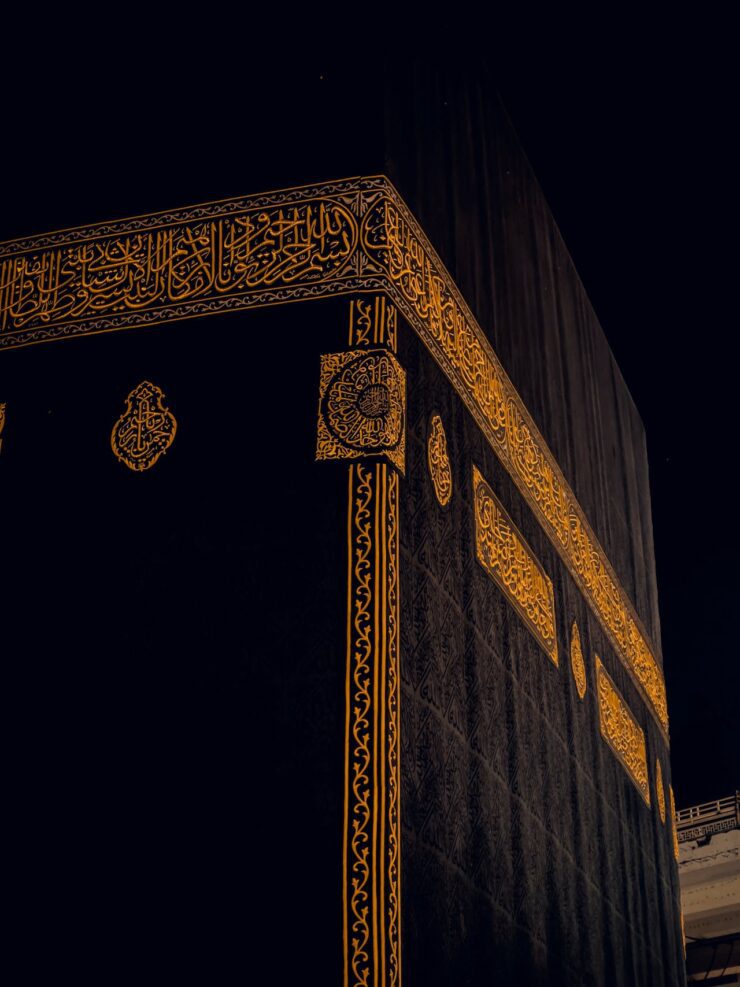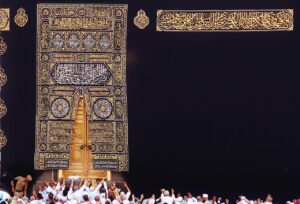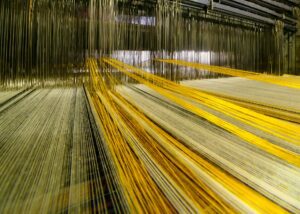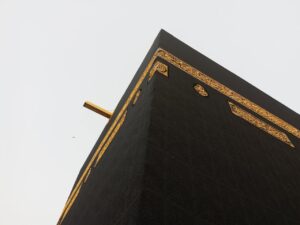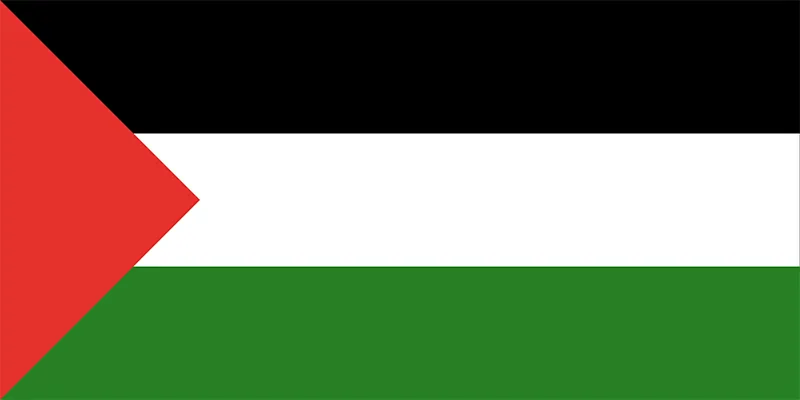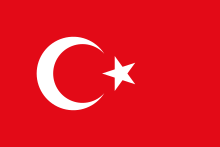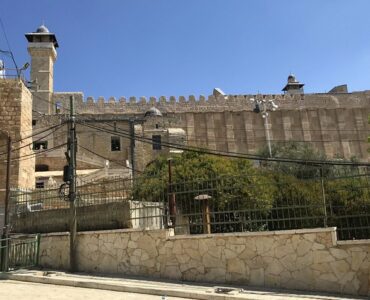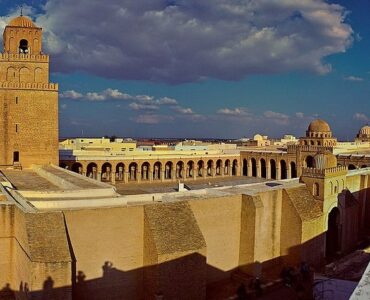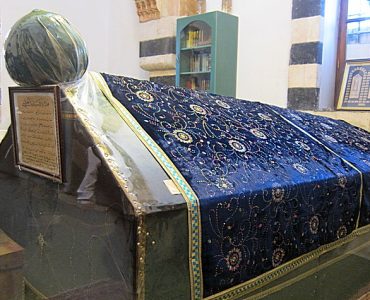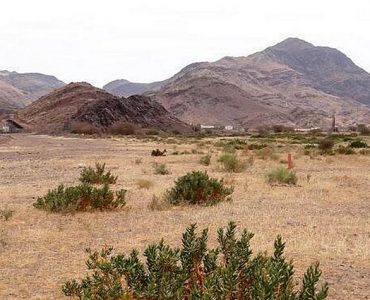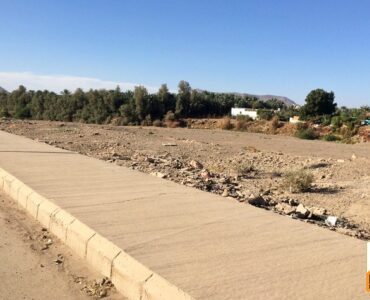In the heart of Mecca, the spiritual center of Islam, lies the Masjid al-Haram, housing the revered Kaaba, a symbol of unity and devotion, and the focal point of the annual pilgrimage, Hajj.
At the core of the annual Hajj rituals lies a remarkable tradition, the changing of the Kiswa, the black cloth covering the Kaaba.
The Saudi King Abdulaziz holds great pride is passing this ritual as religious traditions.
This sacred process occurs at a facility often called the “Kiswa Factory“, situated in Saudi Arabia. In this article, we’ll take a closer look at the skill; explore its history, and importance that made up the making of the Kiswa.
The factory is located at old Makkah Jeddah road, Al Hamra Umm Al Judd 2903, Makkah Saudi, or Mecca Saudi Arabia 2432.
The Significance of the Kiswa
The Kiswa, or cover, serves as a powerful symbol in Islam, representing purity, humility, and unity among the Muslim community.
It is a fabric woven with religious significance, designed to honor the sanctity of the holy Kaaba, the House of Allah.
The tradition of changing the Kiswa annually during the Hajj pilgrimage dates back centuries, symbolizing the renewal of commitment to the divine.
Crafting the Kiswa
The kaaba kiswah is no ordinary fabric, a testament to the craftsmanship deeply embedded in Islamic traditions.
The meticulous crafting of the Kiswa involves a harmonious blend of artistic skill, precision, and dedication.
Materials Used
Traditionally, the Kiswa is made from high-quality silk and cotton threads. The fabric is dyed black, symbolizing simplicity, equality, and the absence of worldly adornment.
The choice of black also serves a practical purpose, as it minimizes the visibility of dirt and wear, given the heavy foot traffic around the Kaaba.
Weaving Process
The weaving of the Kiswa is a labor-intensive process that demands exceptional skill. Historically, the fabric was handwoven, requiring immense patience and attention to detail.
Technological advancements have recently introduced modern machinery to expedite the process, yet the essence of craftsmanship remains.
While tourists and visitors travel through this Saudi factory, they can also participate in this handcraft by sewing the silk thread on top of the beautiful Kiswa cloth.
The intricate patterns and designs on the Kiswa are not merely ornamental; they carry deep spiritual symbolism.
Islamic calligraphy, verses from the Quran, and geometric patterns adorn the fabric, adding layers of meaning and reverence.
The weavers carefully incorporate these elements, infusing each thread with spiritual significance.
The Kiswa Factory: Where Tradition Meets Technology
The Kiswa Factory, also known as Dar Al-Kiswa, is the institution responsible for crafting the sacred cover for the Kaaba.
This facility is located in Mecca and represents a harmonious blend of tradition and technology. The factory has evolved over the years, adapting to modern advancements while preserving the age-old traditions of Kiswa production.
Historical Evolution
The history of the Kiswa Factory dates back to the early Islamic era when the caliphs took the responsibility of providing the Kaaba with a new cover each year.
Over time, the process became more organized, and dedicated facilities emerged to handle the intricate task. Today, the Kiswa Factory is a symbol of collective effort, bringing together skilled artisans, weavers, and modern machinery.
Modern Techniques
While the essence of craftsmanship remains unchanged, the Kiswa Factory has embraced modern techniques to streamline production.
Advanced looms, dyeing processes, and quality control measures have enhanced efficiency without compromising the sanctity of the craft.
The use of technology ensures that the Kiswa maintains its high standards while meeting the demands of a growing global Muslim population.
Symbolism in Every Thread
As the artisans meticulously weave the fabric, they do more than create a physical covering for the Kaaba.
They imbue each thread with spiritual significance, understanding the sacred purpose that the Kiswa serves.
The verses from the Quran woven into the fabric carry profound meanings, reminding the Muslim community of their commitment to faith and unity.
The Annual Changing Ceremony
The most important part of the Kiswa’s journey happens every year during a special ceremony held in Makkah. This ceremony happens on the 9th day of Dhu al-Hijjah, the same day as the Day of Arafat during Hajj.
The prayer facilities are postponed (expanding to the Holy masjid Al-Nabwi, till the ritual continues) spreading the scent of Oud in all directions.
The existing Kiswa is removed, and the new one is carefully draped over the Kaaba. Millions of pilgrims witness this symbolic act, marking the beginning of a new pilgrimage year.
Preserving Tradition in a Changing World
The Kiswa Factory is not merely a production facility; it is a guardian of tradition, ensuring that the artistry and significance of the Kiswa are preserved for future generations.
The craftsmen and women who dedicate their lives to this noble task understand the weight of their responsibility to uphold a centuries-old tradition that connects Muslims across time and space.
Summary – Kiswa Factory
In Mecca, within the walls of the Kiswa Factory, a profound connection between tradition and modernity unfolds.
Adjacent to the masjid Al-Nabwi, the beautiful ceremony of Kiswa takes place, muslims all around the world enjoy this ritual, connected through technology.
The crafting of the Kiswa is more than a technical process; the Kiswa is not simply a cover. It means a lot to Muslims. It reminds them to be humble and that we’re all equals, like the colour black.
Changing it every year during Hajj is like starting fresh and getting closer to God.
Kiswa has a long history, connecting Muslims to the past. It unites them, no matter where they come from

